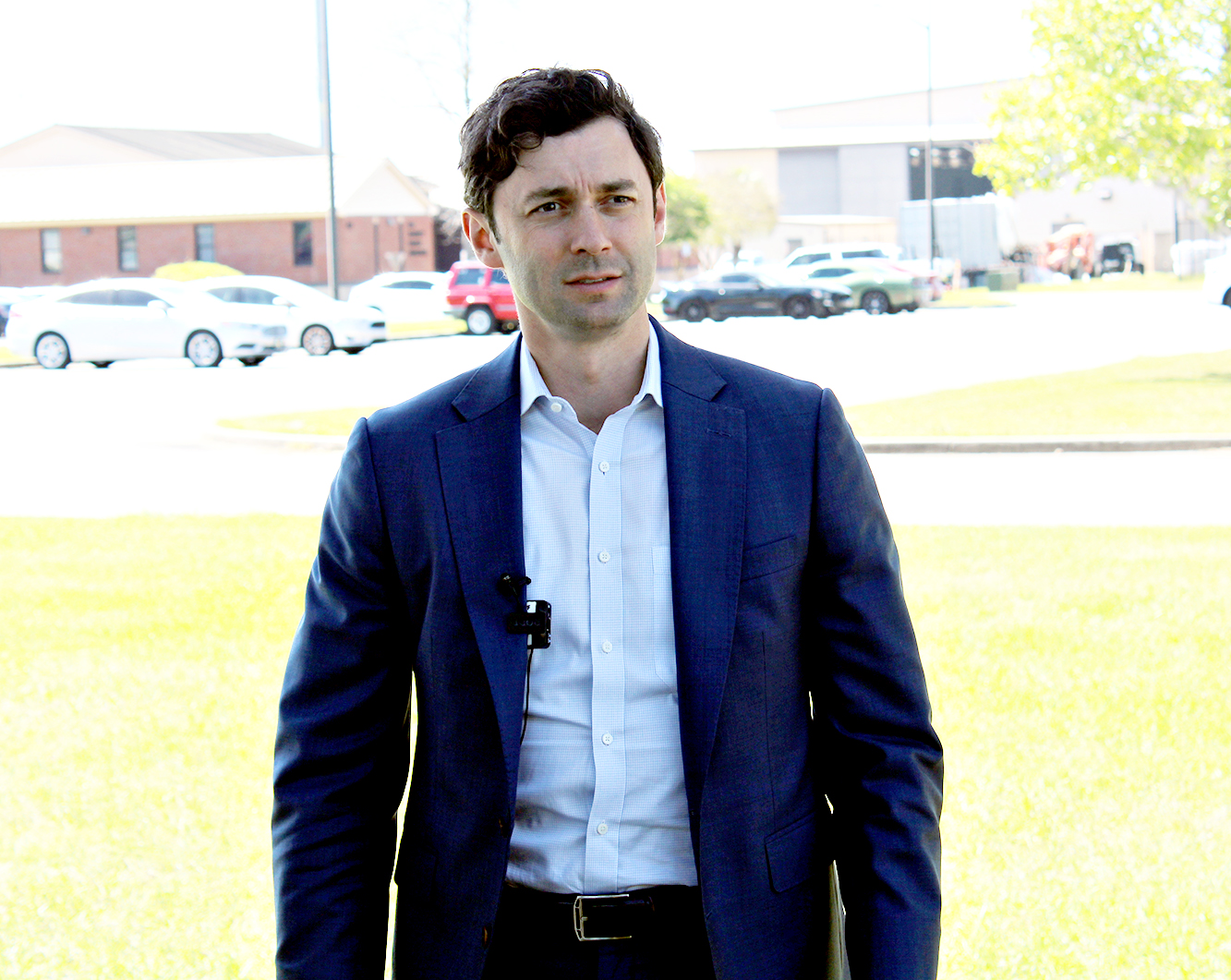Movie gets out of its ‘Shell’
Published 1:00 pm Thursday, April 6, 2017
“Ghost in the Shell” (Science Fiction/Action/Crime: 1 hour, 47 minutes)
Starring: Scarlett Johansson, Pilou Asbæk, Takeshi Kitano, Michael Pitt and Juliette Binoche
Director: Rupert Sanders
Rated: PG-13 (Violence, suggestive content and disturbing imagery)
Movie Review: An adaption of the comic “The Ghost in the Shell” by Masamune Shirow and following the internationally acclaimed Japanese Manga, “Ghost in the Shell” (Director Mamoru Oshii, 1995), the movie boasts cool visuals and a stunning performance from Scarlett Johansson. The elements are appealing, but the apex feels slighted for a crime genre movie.
In the near future, Major (Johansson) is a cyborg detective for the anti-terrorist unit Public Security Section 9. Her brain is in an android body, placed there after a severe accident. Her cyber-enhancements make her the perfect law enforcer.
Her latest case has her leading a team to find a terrorist who is killing and hacking people’s brain. While tracking the terrorists, Major learns something about her past that may jeopardize her mission.
The screenplay is reminiscent of “Blade Runner” (1982) and “RoboCop” (1987). In “Blade Runner,” Harrison Ford hunts replicants, androids that appear to be human beings. “RoboCop” features a police officer who has cybernetic enhancements that he uses to stop crime.
“Ghost in the Shell” is similar to these movies yet distinctively different.
One, it has a female lead, the beautiful and talented Johansson. She dazzles as an action star; see her work in “The Avengers” (2012) as Black Widow for more. She is good here, too. She is compelling in a manner that makes the narrative work.
That believability propels the screenplay when the crime-driven plot and Major’s personal crisis fail to maintain momentum.
The story has a nice build up, but a critical apex is lacking. The wait for the climax is a slow steady process. When the conclusion arrives, it feels lesser than the initial setup. However, the nice action and visual effects are nice distractions.
Grade: B- (The “Ghost” is transparent but offers enough to see to make it worth it.)
“The Last Word” (Drama/Comedy: 1 hour, 48 minutes)
Starring: Shirley MacLaine, Amanda Seyfried and Ann’Jewel Lee Dixon
Director: Mark Pellington
Rated: R (Profanity and thematic elements)
Movie Review: Sometimes a movie is not necessarily the most exacting regarding quality, but it offers some brilliance enough that it at least offers some mental enlightenment.
“The Last Word” offers an engaging turn by Shirley MacLaine as a cantankerous woman who wants the last word. MacLaine is the gem in the rough of this “dramedy,” although the rest of the movie is not as sparkly and it is overly sentimental sometimes.
Harriet Lauler (MacLaine) is an accomplished, retired businesswoman. She is also a controlling person. She plans everything she desires, or she takes control herself. Contemplating death, she starts reading obituaries, which leads her to speculate about her future obituary.
Lauler approaches young local newspaper writer Anne Sherman (Seyfried) about prematurely writing her obituary. Sherman begins tracking down people who know Lauler. The young journalist finds few people who think positively about Lauler, but Sherman and Lauler bond, and they, with an at-risk-youth Brenda (Dixon), begin a friendly trek towards friendship.
This is supposed to be MacLaine return to the big screen in a grand fashion. MacLaine is endearing to watch. She delivers quips like the true professional she is.
However, she is the best reason to see the movie.
Much of the wisdom offered by Harriet Lauler appears wisdom from Shirley MacLaine. As a disc jockey, she tells radio listeners in a scene, “This is Harriet Lawler saying please don’t have a nice day. Have a day that matters, have a day that’s true … have a day that means something.”
Lauler tells Seyfried’s Sherman, “You don’t make mistakes, mistakes make you.” And, Lauler should know. She has made plenty.
Harriet Lauler is worried about how people will view her at the time of her death. Although a grumpy person, Lauler is an intelligently talented woman. She has exceeded in what many other women in her generation could not. She built a business, divorced agreeably, spoke her mind, bulked the male-dominated business world and encouraged others to live bravely. That is Lauler’s legacy.
The fact Lauler worries about what others think about her proves she is not as arrogant as people would think. She really wants people to think kindly of her. And a few of them do. Her ego and controlling nature just get in the way.
Lauler, an octogenarian, knows she is near the end of life. She decides to control that too by shaping her legacy. The problem is she already has one. This is wisdom the movie present. How one lives life is more important than how people view that life.
The wisdom this movie provides is much better than the movie itself. The script needs help as it forces events and relationships. It does this too heavily. That occasionally negates the good words offered. Because of this, “The Last Word” is not a great cinematic feat, but it does offer useful wisdom.
Grade: C+ (Not a definitive word, but useful.)
*Playing in larger cities
“Boss Baby” (Animation/Comedy: 1 hour, 37 minutes)
Starring: Alec Baldwin, Steve Buscemi, Miles Christopher Bakshi and Jimmy Kimmel
Director: Tom McGrath
Rated: PG (Violence and some mild rude humor)
Movie Review: The trailers for this movie portray it as something else. “Boss Baby” is a farfetched story that stretches believability for the world it creates.
The comedy may boast cute characters but the story in which they exist is overly complex and jumbled.
Boss Baby (Baldwin), is a suit-wearing toddler who carries a briefcase. When Boss Baby arrives at the Templeton household, he and his new 7-year-old brother, Tim (Bakshi), clash. They have differences they put aside if they are to find out what the Puppy Company has planned.
Again, “Boss Baby’s” advertising made it appear better than it is. The movie is a hodgepodge of ideas thrown together to get a full-length movie. The mixed ideas make this tale further from believability, even if it is cute and adventurous occasionally.
Grade: C+ (Not the boss of me, however cute.)
“The Zookeeper’s Wife” (Period Drama/Biography: 2 hours, 6 minutes)
Starring: Jessica Chastain, Johan Heldenbergh and Daniel Brühl
Director: Niki Caro
Rated: PG-13 (Violence, thematic elements, disturbing imagery, brief sexuality, and nudity)
Movie Review: “The Zookeeper’s Wife” is an adaptation based on true events from the book of Diane Ackerman and a screenplay by Angela Workman.
The writers and Director Niki Caro (“Whale Rider,” 2002) provide audiences with a passionate playout. The women provide a powerfully engaging story, where Jessica Chastain plays a courageous spouse during World War II.
The Warsaw Zoo in 1939-1945 Poland is the home of Antonina and Dr. Jan Żabiński (Chastain and Heldenberghand). The couple helped save hundreds of Jews by hiding them from the Nazi’s during the German occupation of Poland.
The couple places their family in constant danger as efforts to hide their doings are under threat from a Nazi unit led by Dr. Lutz Heck (Brühl), a German zoologist.
“Zookeeper’s Wife” is similar to “Schindler’s List” (1993). Both show the noble paths of people who take extraordinary efforts to save lives. “Zookeeper’s Wife” features a noble story, an engaging movie.
Angela Workman’s creates a genuine intrigue. Her writing creates tensions between her characters as they fathom the dangerous times in which they exist. This works to make the characters tangible. It also makes their efforts a tense narrative that engages audiences brilliantly.
The key to the photoplay is its compelling cast.
Chastain is cunningly genuine as a wife facing danger and the advances of a man other than her husband. Her scenes with the talented Brühl are some of the movies most intense.
Brühl plays an antagonist well; see his work in “Captain America: Civil War” (2016) and “Rush” (2013).
Heldenbergh ably joins them as Chastain’s husband and a zoologist.
The three create a suspenseful movie, even if the love triangle borders on soap operatic moments.
Caro does an able job directing, although the passage of time is iffy. Some scenes make it difficult to tell how much time has passed. The movie appears to jump years with little sense of recognizable passing of time for audiences. It is a noticeable problem with the screenplay. The undetectable passage of time detracts from the story.
Otherwise, “Zookeeper’s Wife” is good for adult audiences wanting another heroic narrative set during one of history’s awful events.
Grade: B (“Zookeeper’s Wife” delivers a potent performance by Chastain.)
“The Sense of an Ending” (Drama: 1 hour, 48 minutes)
Starring: Jim Broadbent, Charlotte Rampling, Harriet Walter, Michelle Dockery and Emily Mortimer
Director: Ritesh Batra
Rated: PG-13 (Thematic elements, a violent image, sexuality, and profanity)
Movie Review: “The Sense of an Ending boasts a talented cast and a nice story.
The problem is it is too much like real life that it is boring as a cinematic venture.
Tony Webster (a seasoned Broadbent) operates a tiny second-hand camera store. His life is typical. He wakes early. He has coffee with his ex-wife, Margaret Webster (Walther), and acts as a periodic chauffeur his pregnant daughter, Susie (“Downton Abbey’s” Dockery).
His life changes when he receives a letter regarding a woman he dated while a university student. A rush of memories makes Tony contemplate his life, especially a tragic event that remains prevalent in his mind.
In addition, he anxiously faces meeting with Veronica (the incomparable Charlotte Rampling), a past love.
Everyday life is typically formulaic events: wake, work, lunch, work, home to rest to start the sequence again until one’s day off. The parts that are not formulaic are often the tragic or unforgettable moments.
Most movies focus on just a few everyday moments. Director Ritesh Batra (“The Lunchbox,” 2013) focuses on the less dramatic moments.
It is a shame considering the cast is a talented group of dynamic actors. Broadbent is charming as an older man contemplating life. Rampling is an agreeable enigmatic character, and Walther and Mortimer are endearing.
“Sense of an Ending” is an accumulation of moments from a man’s life. Some are interesting, and others are humdrum. The prior is engaging, and the latter induces sleep mode.
Grade: C+ (The sense is it could be more energetic.)
*Playing in larger cities





